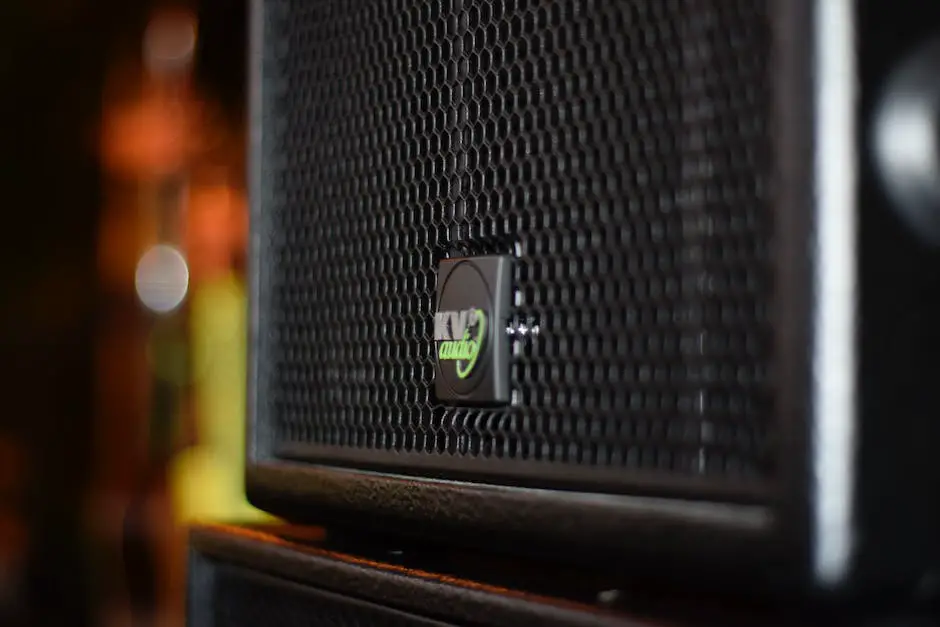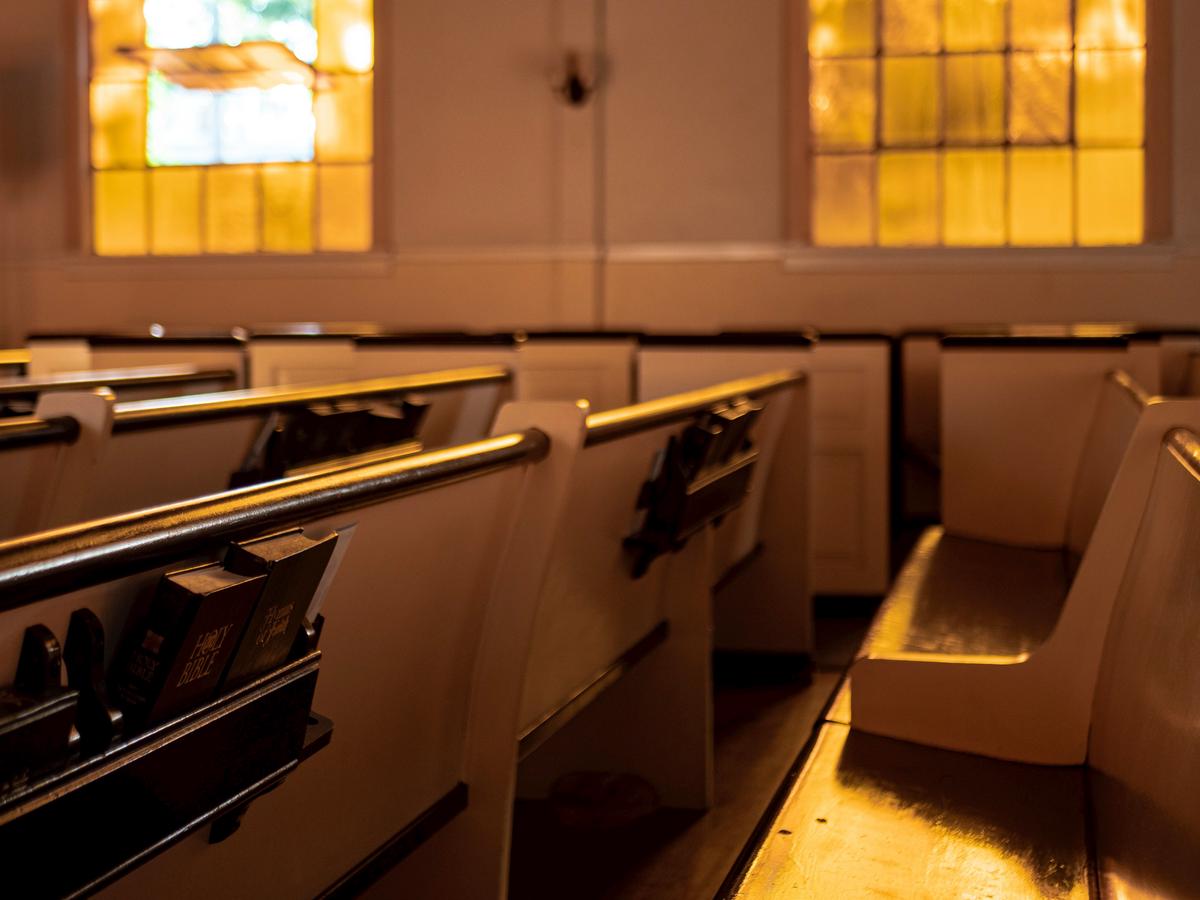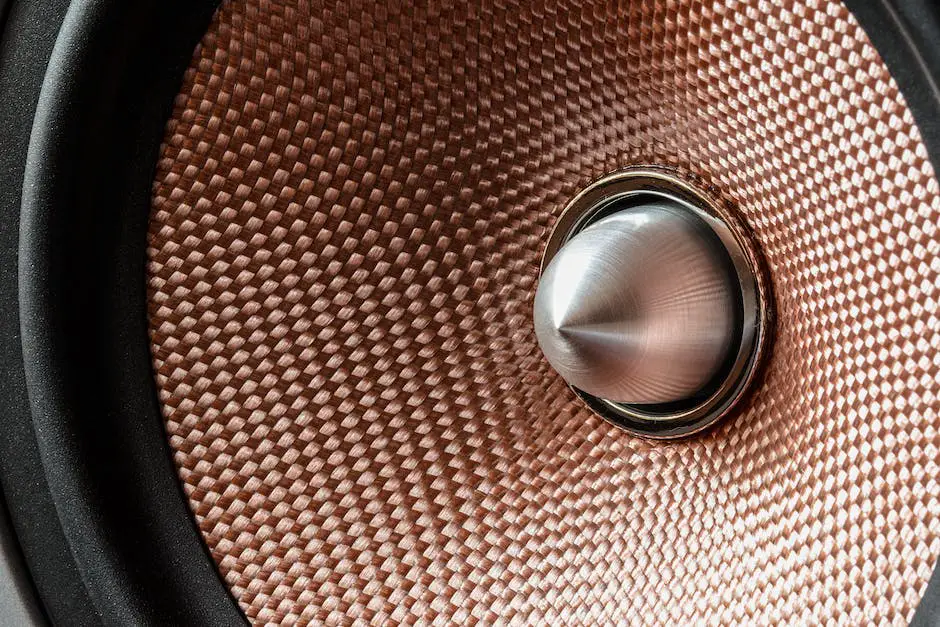When it comes to enhancing the auditory experience in churches, determining the right sound system is crucial. This task involves considering the space, congregation, and service types to ensure the sound quality meets the needs of all churchgoers. The right approach to assessing and selecting sound systems can significantly impact the overall worship experience. Let’s take a look at the top speaker brands for your church.
Evaluating Sound Needs for Worship Spaces
Assessing Sound System Needs for Churches
When churches look to enhance their audio experience, understanding how to assess sound system needs becomes crucial. This task involves more than just picking out high-quality speakers; it involves a thorough evaluation of the church’s architecture, congregation size, and types of services offered.
Size Matters
The size of the church is a primary factor in determining the scale and power of the sound system required. Small chapels might only need a basic setup with a few microphones and speakers, whereas large sanctuaries could require an intricate system with multiple inputs and outputs, amplifiers, and speakers strategically placed for optimal sound distribution.
Acoustic Challenges
Church buildings, particularly older ones with high ceilings, stained glass, and hard surfaces, pose unique acoustic challenges. Sound can echo or become muffled, affecting clarity. To counteract these issues, it’s vital to consider the acoustics of the space. Carpeting, padded seating, and acoustical treatments can improve sound quality, but the sound system design needs to specifically address these challenges by ensuring speakers and microphones are appropriately positioned and tuned to the environment.
Service Style
The type of services held in the church also influences sound system requirements. Traditional services might only need reinforcement for speech, making straightforward setups sufficient. However, contemporary services with live music, choirs, and bands necessitate a more complex system. This includes multiple microphones, mixers capable of handling numerous inputs, monitors for the musicians, and main speakers that can deliver clear, high-quality sound to the congregation.
Expert Consultation
Given these factors, churches benefit from consulting with sound system experts who can analyze specific needs. These professionals can assess the physical space, consider the worship style, and recommend systems that balance quality, functionality, and budget. They can also guide on whether to phase out the installation to ease the financial burden without compromising on immediate needs.
Integration and Flexibility
Lastly, the chosen sound system should integrate well with existing technology, such as projection systems or recording equipment, and be flexible enough to accommodate future expansions or technological upgrades. This forward-thinking approach ensures the sound system remains a lasting asset for the church.
In conclusion, assessing a church’s sound system needs requires a careful evaluation of various factors including congregation size, architectural features, service style, and future growth. Consulting with experts and considering an integrated, flexible solution can help churches make informed decisions, ensuring their sound system enhances worship experiences for years to come.

Top Speaker Brands for Your Church
Choosing the right speaker brand for a church audio system requires a thoughtful assessment of several key factors beyond the initial considerations of church size, acoustic challenges, service style, and the need for expert consultation and system flexibility. Among the plethora of audio equipment manufacturers, there are a few brands that consistently rise to the top for their quality, reliability, and the ability to meet the unique needs of church environments.
Bose
stands out for its wide range of options that cater to different church sizes and acoustic environments. Known for its clear sound and durability, Bose offers both portable and installed solutions that can handle the dynamic range of music and speech found in church services. The brand is praised for its L1 and F1 systems for smaller spaces, and the RoomMatch series for larger sanctuaries, which are particularly noted for their ability to deliver consistent audio quality throughout irregularly shaped or acoustically challenging spaces.
JBL
, a brand synonymous with powerful performance, offers a comprehensive lineup of speakers that excel in delivering vocal clarity and musical detail. The JBL CBT Series, for example, uses Constant Beamwidth Technology to ensure even coverage, making it a popular choice for churches seeking to overcome complex acoustic issues. JBL’s PRX and SRX series are also favorites among churches for their versatility and ease of integration with existing audio systems.
Yamaha
, another key player, is lauded for its blend of innovation and quality. Yamaha speakers, such as the DXR and DSR series, are appreciated for their crystal-clear sound reproduction and robust build, capable of withstanding the demanding use of dynamic church events. Their wide dispersion patterns make them well-suited for both contemporary services with bands and traditional services where speech intelligibility is paramount.
Electro-Voice
offers a range of speakers that excel in delivering both spoken word and music with exceptional clarity and depth. The ELX and EKX series, in particular, are noted for their durability and sound quality, providing dependable performance that churches can rely on Sunday after Sunday. With models designed for portability and permanent installation, Electro-Voice caters to churches of all sizes and architectural styles.
QSC
has earned its reputation through speakers that provide both power and precision. The K and KW series are acclaimed for their ease of use, stellar sound quality, and reliability. Suitable for a wide range of church activities, from worship services to concerts and events, QSC speakers are built to deliver excellent audio performance with minimal setup and maintenance.
In the realm of church audio systems, speaker selection is critical to ensuring that every sermon, song, and announcement is heard clearly and without distortion. Brands like Bose, JBL, Yamaha, Electro-Voice, and QSC stand out for their commitment to quality, innovation, and the specific needs of religious institutions. By choosing speakers from reputable brands, churches can greatly enhance the worship experience, ensuring that every message, regardless of its nature, is delivered effectively to the congregation.

Technical Specifications and Features to Consider
When selecting speakers for a church, it’s essential to dive into the technical specs that directly impact the sound quality and overall worship experience. One critical aspect to consider is the wattage of the speakers, which refers to their power output. High-wattage speakers can produce louder sounds without distortion, crucial for large churches or those with high ceilings where sound disperses more.
Another key technical spec is the frequency range of the speakers. This indicates the range of sounds the speakers can reproduce. A broader frequency range means the speaker can accurately deliver both the deep bass of an organ and the high pitch of a choir, ensuring each musical nuance and spoken word is heard clearly.
Sensitivity ratings are also vital. This spec measures how effectively a speaker converts power into sound. A speaker with a higher sensitivity rating requires less power to produce the same amount of sound as one with a lower sensitivity rating. This efficiency can be especially beneficial in places of worship where audio systems are in frequent use, helping to reduce energy costs and prolong the lifespan of the equipment.
Additionally, understanding the speaker’s impedance, measured in ohms, is important for matching the speakers to the amplifier. Typically, speakers come in 4, 8, or 16 ohms. Selecting the wrong impedance can lead to poor sound quality or potentially damage the audio equipment. Matching the speaker’s impedance with the amplifier ensures the audio system operates efficiently and produces the best possible sound.
The type of speaker enclosure also influences sound. Sealed enclosures offer precise sound reproduction, ideal for clear spoken words, while ported or bass reflex enclosures enhance the bass response, enriching musical performances. The choice depends on the church’s acoustic environment and the types of services held.
Connectivity options are becoming increasingly relevant in today’s tech-savvy world. Speakers with built-in Bluetooth or Wi-Fi capabilities allow for wireless audio streaming, adding flexibility to how and where audio can be played. This feature can be particularly useful for churches looking to integrate multimedia elements into their services or for those that host a variety of community events.
Lastly, considering the directional characteristics of the speaker, often referred to as the dispersion pattern, ensures the sound is directed exactly where it’s needed, minimizing reflections and echo. This consideration is crucial for maintaining vocal clarity and reducing audio feedback during services.
In conclusion, navigating through the maze of technical specs when selecting church speakers is no small feat. However, prioritizing aspects like wattage, frequency range, sensitivity, impedance, the type of enclosure, connectivity options, and dispersion pattern can significantly enhance the worship experience. By focusing on these key specifications, churches can ensure their congregation receives the best audio quality, fostering a more engaging and immersive worship environment.

Installation and Maintenance Tips
Maintaining the longevity of church speakers extends beyond the initial selection and installation. It encapsulates proper care, regular maintenance, and strategic use to ensure these critical components serve the church community for years. From the right handling practices to embracing technological advancements, churches can adopt several measures to safeguard their investment in high-quality audio systems.
Scheduled Maintenance and Care
Regular maintenance checks are paramount. Churches should establish a routine for inspecting speaker systems, looking for signs of wear and tear, such as frayed wires or dust accumulation. These inspections can prevent minor issues from escalating into more significant problems that could compromise the sound quality or the lifespan of the speakers.
Proper Usage Practices
Understanding and adhering to the operational limits of speakers is vital. Overdriving speakers beyond their capacity can lead to distortion and damage. Churches should ensure that the volume levels are within the manufacturer’s recommended range, especially during high-energy services or events where the temptation to crank up the volume might be strong.
Environmental Considerations
The environment plays a crucial role in the longevity of speakers. Factors like humidity, temperature, and exposure to sunlight can affect speaker performance and durability. Churches located in areas with high humidity should consider dehumidifiers, while those in very sunny locations should place speakers away from direct sunlight to prevent material degradation.
Training for Staff and Volunteers
Investing in training for staff and volunteers who operate the audio equipment can prevent mishandling. Educating them on correct setup, operation, and shutdown procedures minimizes the risk of accidental misuse. Moreover, knowledgeable operators can identify potential problems early, reducing costly repairs or replacements.
Embracing Technological Advancements
As technology evolves, so do the features that enhance speaker durability. Features like built-in overload protection can safeguard speakers from damage due to excessive input. Churches should stay informed about new technological advancements and consider upgrades or additions that could prolong the life of their audio system.
Implementing Sound Management Software
Advanced sound management software can optimize speaker performance and protect them from damage. These systems can automatically adjust levels, equalization, and other parameters in real-time, ensuring that speakers operate efficiently without being overtaxed.
Proper Storage Solutions
For churches that use portable speakers or have extra units not in permanent use, proper storage solutions are essential. Storing speakers in a clean, dry, temperature-controlled environment protects them from elements that could cause deterioration. Additionally, using padded covers or cases can prevent physical damage during transportation or storage.
Conclusion
Churches hold a responsibility not just to choose the right speakers, but to maintain their function and quality over time. Through regular maintenance, proper usage, environmental protection, and continuous education, speakers can remain a vital part of the worship experience for years to come. Implementing these strategies ensures that church speakers deliver crisp, clear sound that enriches every service, meeting the spiritual needs of the congregation without frequent replacements or costly repairs.

Budgeting and Financing Options for Church Audio Equipment













